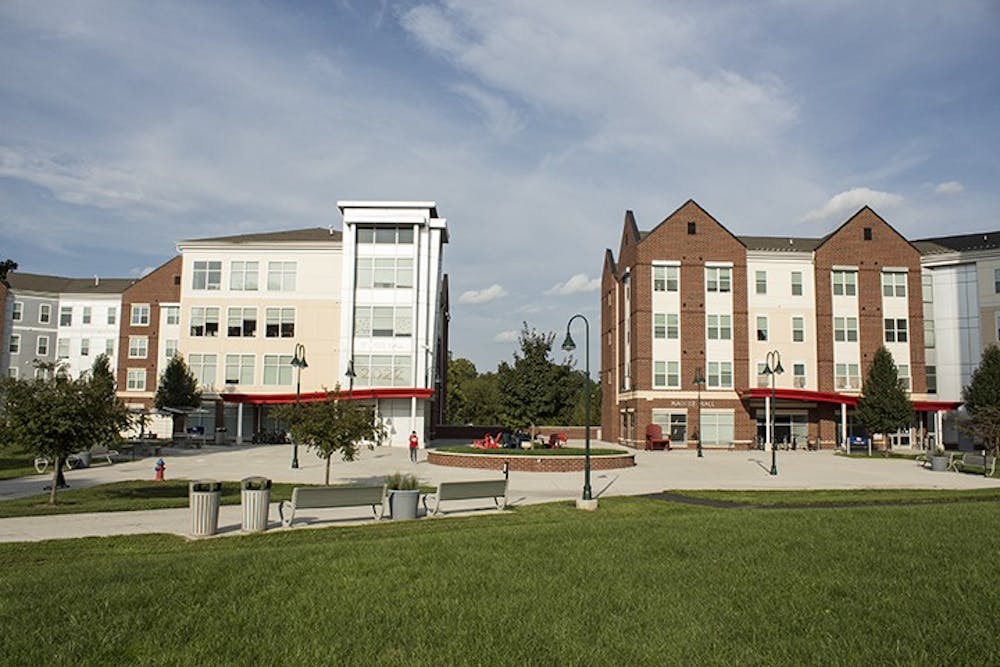Due to recent major changes to the 2019-2020 housing agreement, some students may no longer be eligible to move off campus.
Shippensburg University is now one of eight of the Pennsylvania State System of Higher Education universities to require students to live on campus for two years. Beginning in the fall of 2019, Bloomsburg University will also have the same requirement.
As noted in a recent SUTV news broadcast, there have been major changes to the SU 2019-2020 Housing Agreement.
After reviewing the 2019-2020 agreement, which can be found on ship.edu, The Slate found that SU students have to meet more requirements to move out of the residence halls.
Section I of the agreement states that all first-year students must live in the residence halls. Exceptions to this rule include students who are over 21, married, live with parents or legal guardians within 35 miles of campus, and those with a dependent child at home. This requirement was also included in the 2018-2019 agreement.
The changes come for second-year students. Last year, students were only required to live on campus for one academic year. Once this requirement had been fulfilled, students were free to choose to live either on campus or off campus.
The 2019-2020 housing agreement states, “If a student has not earned 60 undergraduate credits by the beginning of classes for their second fall semester, they are required to enter minimally into a full academic year (two semesters) housing agreement and fulfill all terms thereof to fulfill the two-year housing requirement. A special exemption will be made for students who have completed their first year live-on requirement: If a student achieves a 3.2 GPA or higher at the end of the full academic year of fulfilling the housing live-on requirement (two semesters), they are eligible to submit a “request for a housing/commuter exemption agreement” by June 1, and upon approval will be formally released by the Housing and Residence Life office for the fall semester.”
SU students typically only take 15 credits a semester, meaning that by their sophomore year, students would only have 30 credits, not the required 60 to move off-campus. However, it is also written in the agreement that students may be eligible for an exemption to live off-campus if they achieve a 3.2 GPA or higher.
Juniors and seniors will not be required to live on campus.
The new rule will be enforced as part of the updated SU admissions package accepted students will receive “as students are admitted and confirm their fall 2019 attendance, they will have full knowledge of the two-year housing requirement,” Danny Velez interim vice president for student affairs said.
In a 2011 press release, SU news said the residence halls were updated to create a more modern space for more students, after a 2010 market analysis showed a high demand for new housing for students. These updates would be completed in three phases.
However, new housing came at a hefty cost.
According to Naomi Creason of The (Carlisle) Sentinel, the updating of the residence halls cost $134 million for the first two phases. Phase one and two included the construction of Harley, Seavers, McLean, Kieffer, Lackhove and McCune halls.
Phase three has yet to be fully completed due to a decline in enrollment, according to Creason.
SU administrators believe that this new living requirement can only help students. In an email, Velez said, “If the results of the research are accurate, and we have no reason to doubt them at this juncture, the two-year, live-on requirement should enhance the academic and living-learning environment for students residing in the residence halls; which will increase the number of students living on campus and also will increase the number of students graduating from Shippensburg University.”
He also believes that the new housing requirements will have a “positive effect on student persistence and graduation.”
Currently, 1,784 students live on campus, an increase from 2017-2018, when SU housed 1,686 of its students.
In a world in which enrollment rates are down and tuition rates soaring, on-campus living requirements may be another deterrent to going to college.
The cheapest suite housing option for 2018-2019 shown on the university’s website for on-campus is the “B-Suite,” which offers the closest option to the traditional dorms. This suite offers one room with two beds, two closets and sinks as well as one private bathroom for $4,009 a semester. The cheapest meal plan, a 15-meal per week with $250 flex, costs $1,875. To live and eat on-campus will cost around $5,884 per semester before the hundreds of dollars added in activity, common damage, comprehensive health, technology tuition and recreation fees.
For the college student who is not getting very much help from his or her parents or FAFSA, this means more high-interest student loan debt. While the university may offer some housing assistance to students whose financial aid package does not fully cover the cost of living on campus, it cannot offer large financial aid packages to all students.


The Slate welcomes thoughtful discussion on all of our stories, but please keep comments civil and on-topic. Read our full guidelines here.